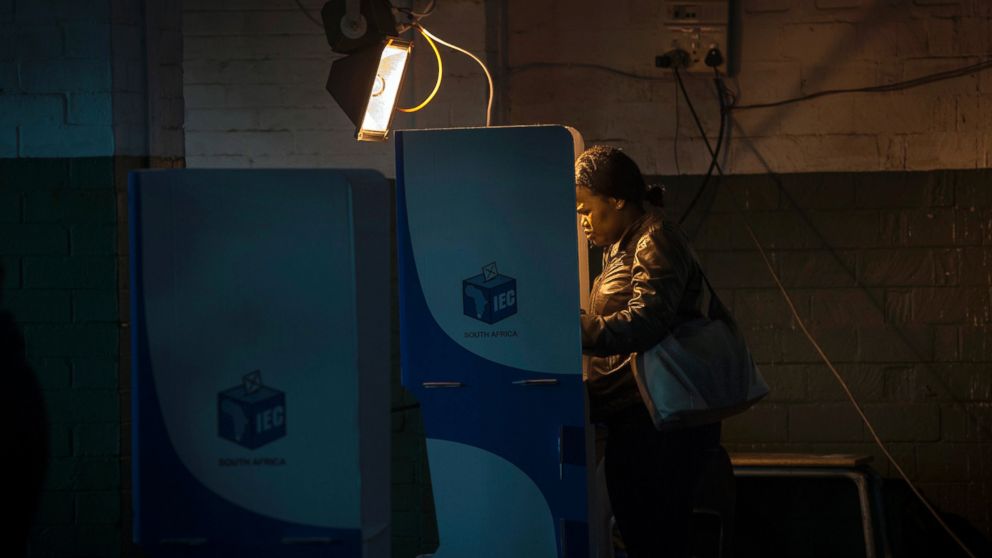Mandela's African National Congress Party Suffers Worst Setback Since Apartheid Ended
The ruling ANC may lose major cities over unemployment and scandals.

— -- South Africa’s ruling party is suffering its worst electoral setback since it ended apartheid under Nelson Mandela more than two decades ago. Voters are expressing discontent over the country's unemployment rate and recent corruption scandals.
As of Friday afternoon, with more than 99 percent of ballots counted, the African National Congress (ANC) has maintained a slim lead of about 54 percent of the vote following Wednesday’s municipal elections. This is the party's weakest result in an election since the party helped free black South Africans from white minority rule in 1994.
Though some races were still too close to call, the ANC is likely to lose its stronghold in some major cities. The party already conceded defeat to its rival, the Democratic Alliance (DA), in Port Elizabeth, an industrial city in Western Cape province. The opposition group, which has long garnered most of its support from white South Africans, for the first time secured the most ballots –- though, not a majority -- in Nelson Mandela Bay, a large black majority city in Eastern Cape province.
The ANC was losing to the DA in tight races in the key cities of Johannesburg, the commercial capital, and Tshwane, home to the political capital, Pretoria. The DA also maintained control of Cape Town, which it has held since 2006. The main opposition group has so far won more than 26 percent of the nationwide municipal vote, according to the partial election results.
Voters have been growing frustrated with the governing party as the economy has struggled and political scandals have grown.
South African President Jacob Zuma rattled investors and sent the country’s rand currency crashing after he changed finance ministers twice in one week this year. South Africa, where mining makes up 60 percent of exports and contributes 8 percent of its GDP, is also reeling from declining global commodity prices and a slowdown in China, its top trading partner. More than 5.6 million people -- 26.6 percent of the country's work force -- are unemployed.
Zuma, 74, survived an impeachment vote in April after the constitutional court ruled he had violated the country’s constitution. He failed to repay millions in taxpayer money that he used for upgrades to his personal residence near the town of Nkandla.
Zuma is facing intensifying calls from the opposition to resign; even some veteran ANC members have urged the embattled leader to step down, saying the scandal has damaged the party’s image and has fractured the trust of its supporters.
The provincial executive committee of the African National Congress chapter in Gauteng said in a statement April 12, “Our president, comrade Jacob Zuma, should reflect deeply and do the right thing to resolve the unprecedented crisis that the ANC currently faces.”




